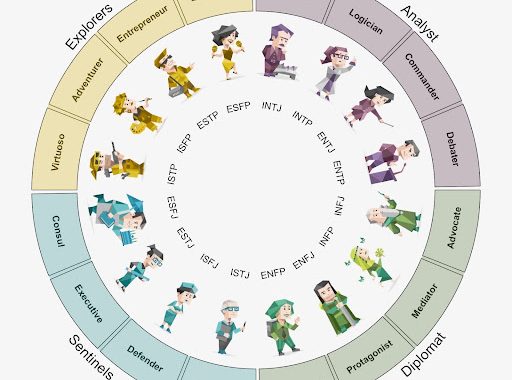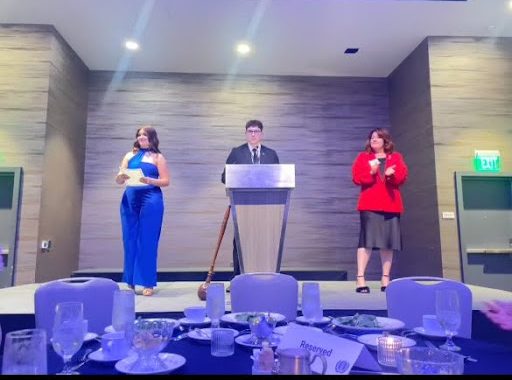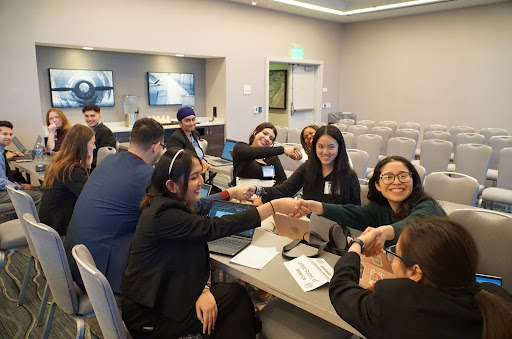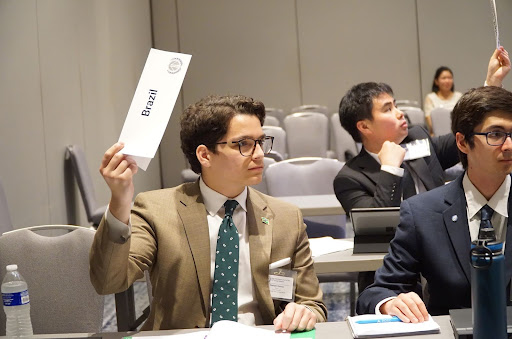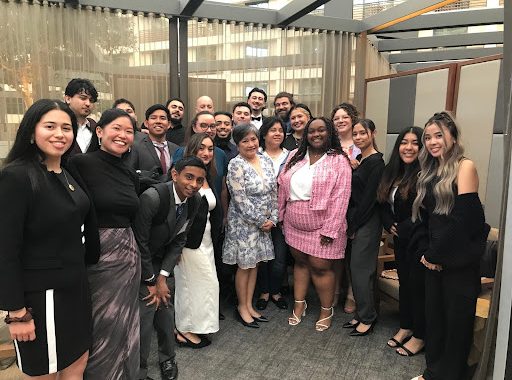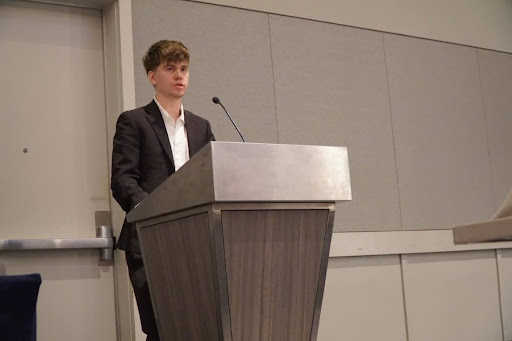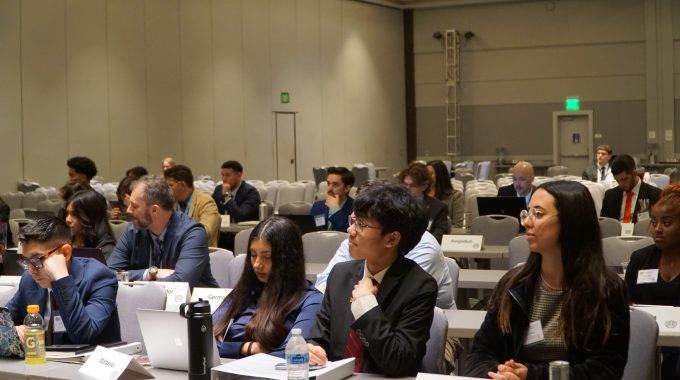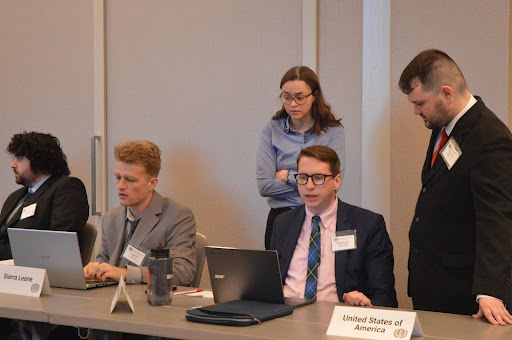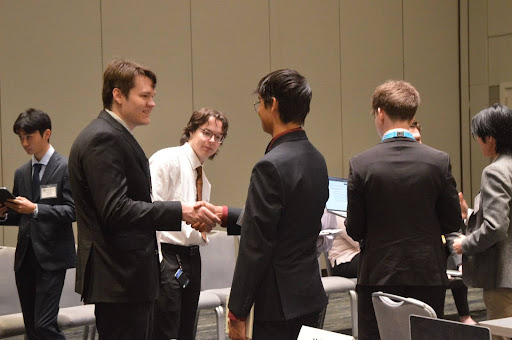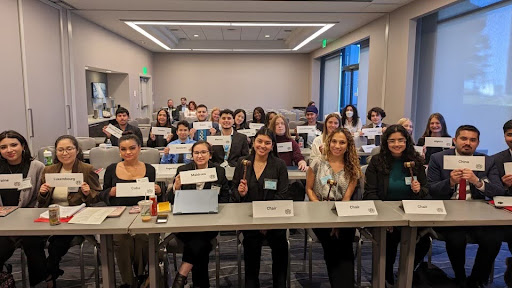Personalities within MUNFW: A focus on dominant personalities within committees
Some research presented in order to introduce and support the thesis that personality tests can accurately represent placement within MUNFW, regarding committee and team placement.
MUNFW is one of the most esteemed conferences students have the opportunity to attend. Under intense pressure in our simulation of democratic process within the United Nations, students have the opportunity to navigate real life issues in a controlled and safe environment. Through the five days of conference, students come together, in order to speak about real world issues. This conference is divided into 6 main councils: Security Council, General Assembly, IOM ( International Organization for Migration), FAO (Food and Agriculture Organization, and HRC (Human Rights Council). Each committee had its own way of conducting itself as they move to passing resolutions.
The Security Council displayed great knowledge and decorum during the session. The General Assembly showcased knowledge and passion in the speeches given during the voting blocks, substantive debate and general debate. The IOM faced hardships, but through chair moderation and delegate collaboration was still able to pass resolutions for 2 agenda topics. The First Council showcased deep understanding of points of procedure, as well as intense diplomacy. The FAO, displayed collaboration and concise resolution with little disagreements throughout the session. Finally the HRC showcased promptness and an extremely effective ability to pass resolutions during the conference. Each delegate and chair of the above specified committees should feel immensely proud and rewarded due to all their hard and very effective work that they exhibited during the conference.
Navigating all these stories and political motions would have been made much more difficult without the hard work and dedication of world press members Sena Bryant, Breanna Reyes, Casey Figone, Wajiha Chaudhary, and Michaela Appiah (reporting now!). Each journalist had their own unique and distinct way of approaching journalism. This was truly a dynamic and well oiled machine! Well done delegates!
Throughout the conference, I could not help but notice the different ways that each council conducted themselves; each showcasing very strong personalities that may have altered the way they approached the various meetings.
A majority of the 34 delegates had Green personality type placement. 40.625% of delegates showcased this personality type who are characterized by the following qualities: diplomats who are kind-hearted and open to other people who prefer working collaboratively rather than competing with their peers. Both GA and IOM were majority green personality types, with green having ⅓ of all committee members falling into this category.
Blue personality types are classified as sentinels who feel a sense of pride and enjoy responsibilities given to them. 15.625% of delegates interviewed were Blue personality types.
FAO was the only committee, 1 of 6, that had a majority of blue personality types. Both delegates interviewed were blue! The FAO members who were interviewed showcased dedication and all took pride in the legislation they were proposing and passing.
Yellow personality types were rare but as explorers they demonstrate exciting, energetic, and bold personality characteristics. Only 6.25% of delegates interviewed were yellow personality types. They were both members of ISFP and both were classified as adventurers which is an introverted branch of this outgoing personality block. Unfortunately, no committee was a majority yellow personality type, though they did have representation within the chair and delegation for the security council.
Finally, persons who identify with the purple personality type (my personal favorite) are analysts who are intuitive thinkers who have a strong ability to rationalize and innovate. This personality type made up the majority of personalities in committees, with ½ of all committees being made up of purple. The committees with more than half of their members having a purple personality are as follows: First Committee, Security Council, and the Human Rights Council. This reflects the creative and innovative solutions each of these committees were able to pass during this conference.
Though all this information is fun to know, interesting to research and makes it easy to easily speak to delegates on a personal level, why is it relevant? Why did one reporter take the time to compile this data, seemingly out of their way to present the conference with some fun tidbit or fact they can take away from the conference? This is simply because although politics is the key topic at these events, documentation and overall data analysis of more scientific subjects such as phycology, is an important angle that Model UN can adopt. How can schools and advisors begin to recognize patterns regarding the selection of delegates, based on personalities, with quantifiable data?
This year’s assembly was also unique because of the number of teams that had an even divide of first time delegates and graduating delegates (read Sena Bryant’s article on this phenomenon under World Press). Could it be argued that teachers were swayed by personalities of new delegates as they decided who to enlist into their new teams? Hypothetically, could personality type moderation and inquiry be a good predictor for ways to alter the outcome of resolutions? This could be done by putting personalities with the greatest compatibility together to ensure that resolutions can and will be passed speedily and effectively due to this compatibility between delegates? This topic of inquiry needs to be researched further, with broader test groups and more in depth records keeping, but this could be an interesting perspective of Model UN to consider especially regarding social circles and committee efficiency.
This is Michaela Appiah (ENTJ: commander) signing off. Until next year, delegates.
Michaela Appiah
World Press Reporter
Weber State University

